Where Do Insects Go in the Winter?
In the hot summer months, it is seemingly impossible to be unaware of the bugs around you. However, insects seem to disappear when colder temperatures arrive – both from our thoughts and the environment around us. But where do these insects go: surely they can’t all vanish as soon as winter hits? The team at Pest Defence is here to answer all your questions.
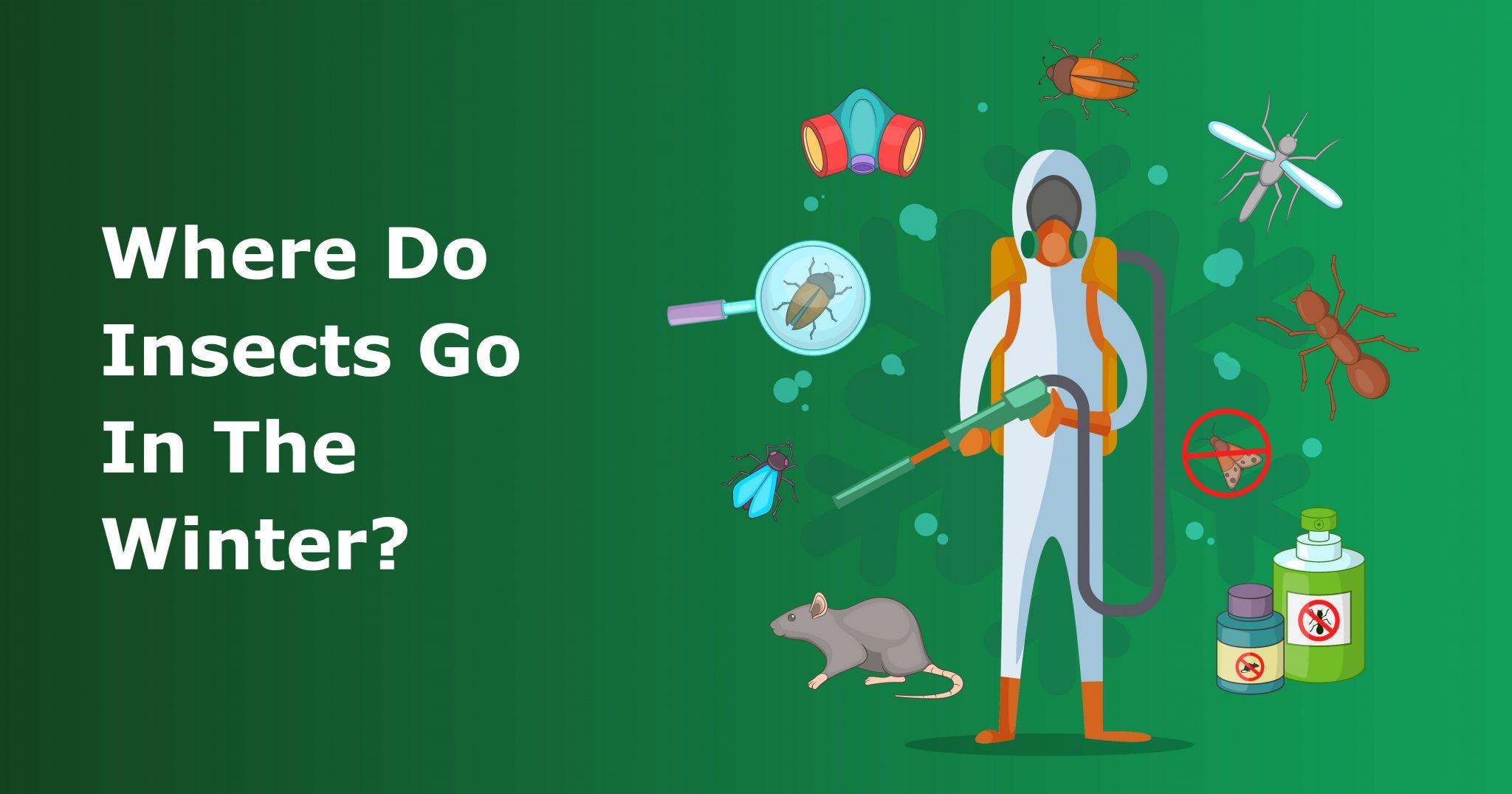
How do bugs survive the winter?
In order for bugs to survive the cold winter temperatures, they must adopt a survival strategy. This varies from species to species, but most insects have four options:
Migration
Insect migration is the seasonal movement of insects from colder to warmer climates. This could involve advancing south, or simply moving to a warmer area nearby: basements, sheds and garages for example.
Diapause
During diapause, insects will enter a dormant state and pause their development by reducing metabolic activity. This is in response to harsh conditions and the process will end when the temperature increases.
Hibernation
During cold winter months, food is harder for insects to come by; in response, the insect will hibernate. This involves reducing body temperature and water content whilst increasing glycerol.
Laying eggs
If survival seems impossible, many insects will lay eggs in order to carry on a new generation in the spring.
Where do bees go in winter?
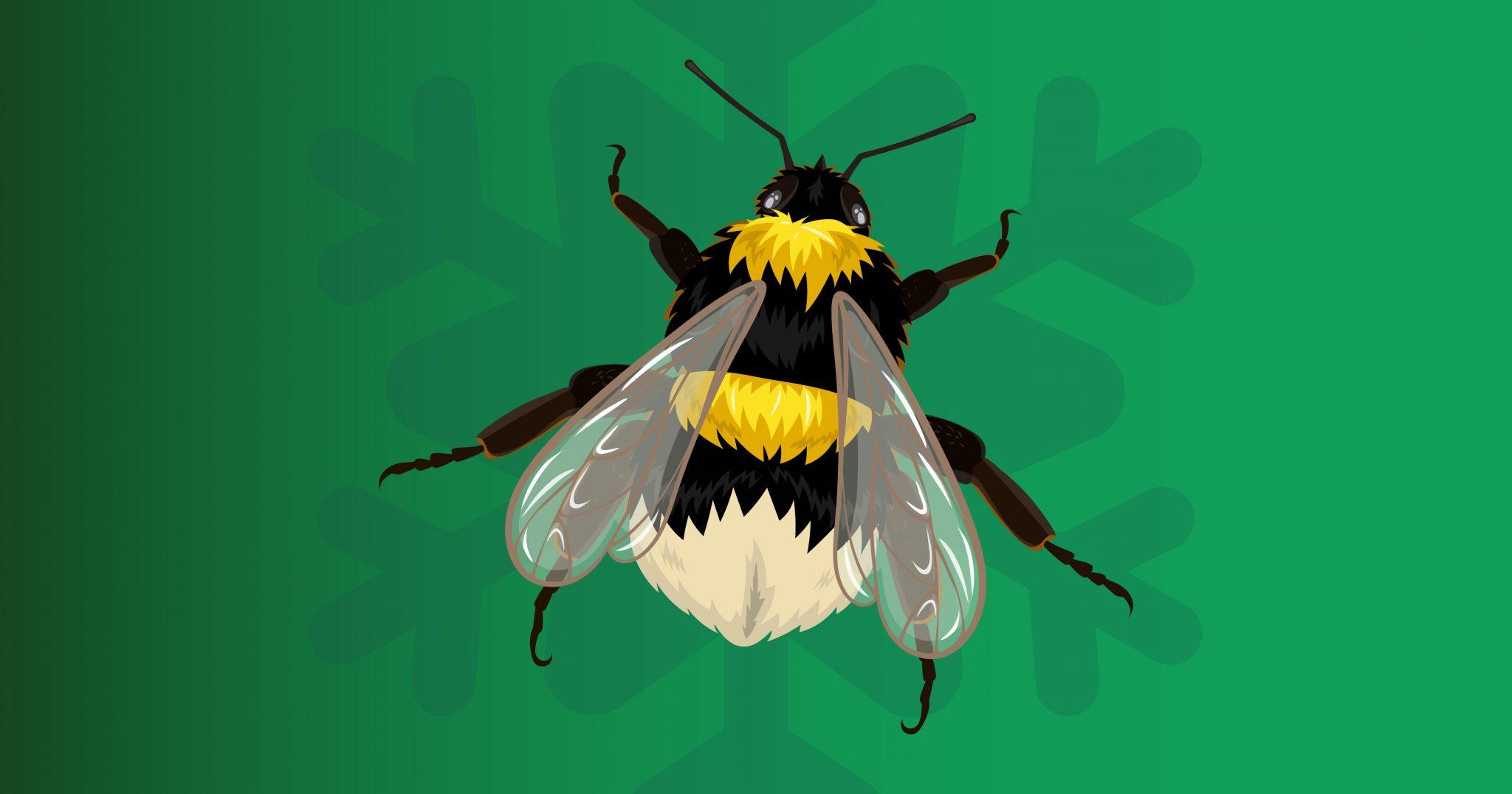
When inclement temperatures arrive, honey bees will stop flying and take shelter in their hive. The hive’s honey stores prove a lifeline as this provides a vital source of energy. The bees will cluster together to retain heat, but their main priority is to keep their queen warm. The swarm will constantly rotate around her, getting temperatures as high as 27°C!
You can read more about bees and where they go in winter in our recent post.
Where do wasps go in winter?
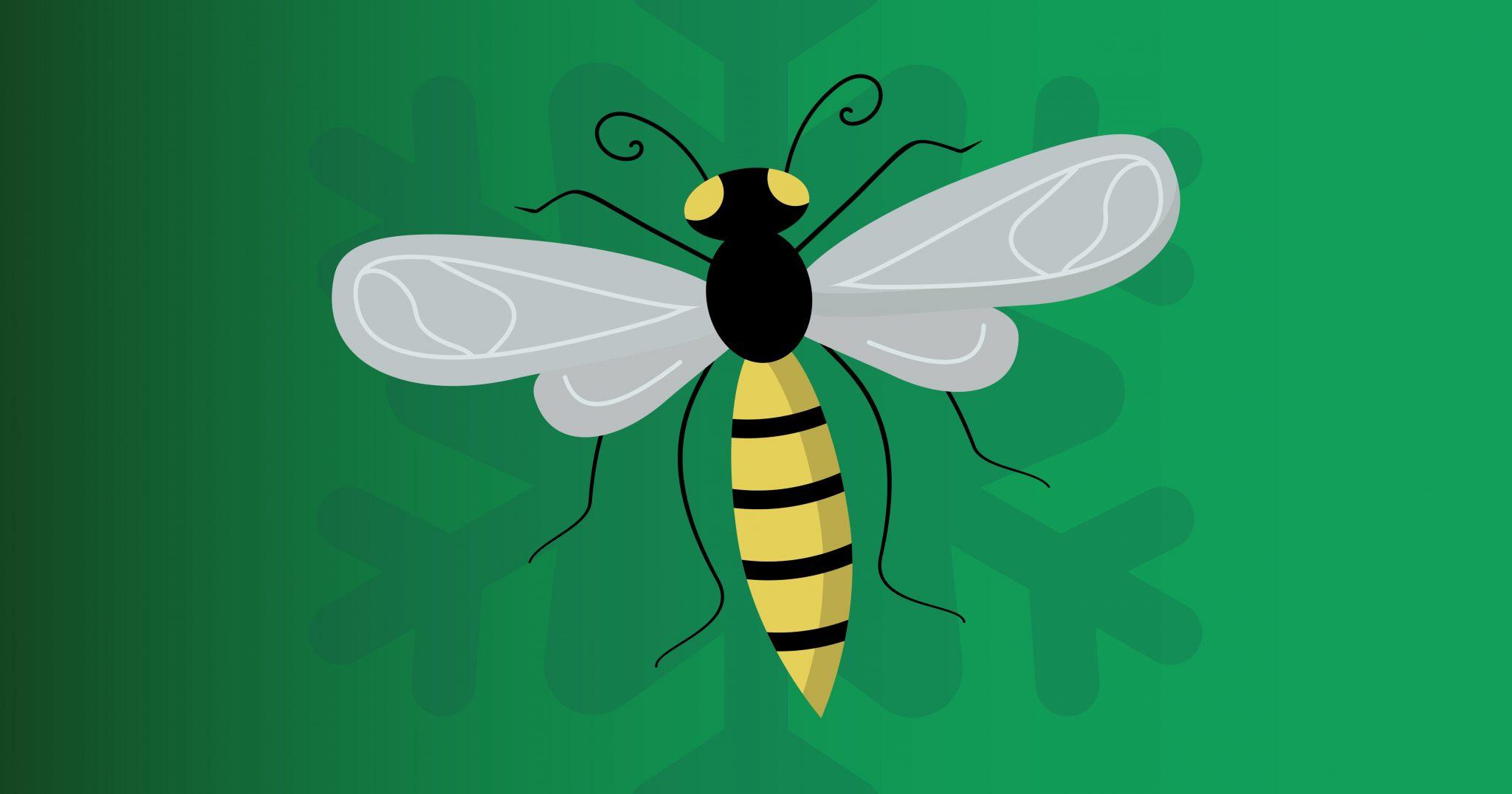
Most wasps will not withstand the winter period. However, each colony should have one wasp that survives: the queen. The queen wasp will find somewhere warm to hibernate until the warmer spring temperatures, where she will then re-emerge to lay eggs.
Where do June bugs go in winter?
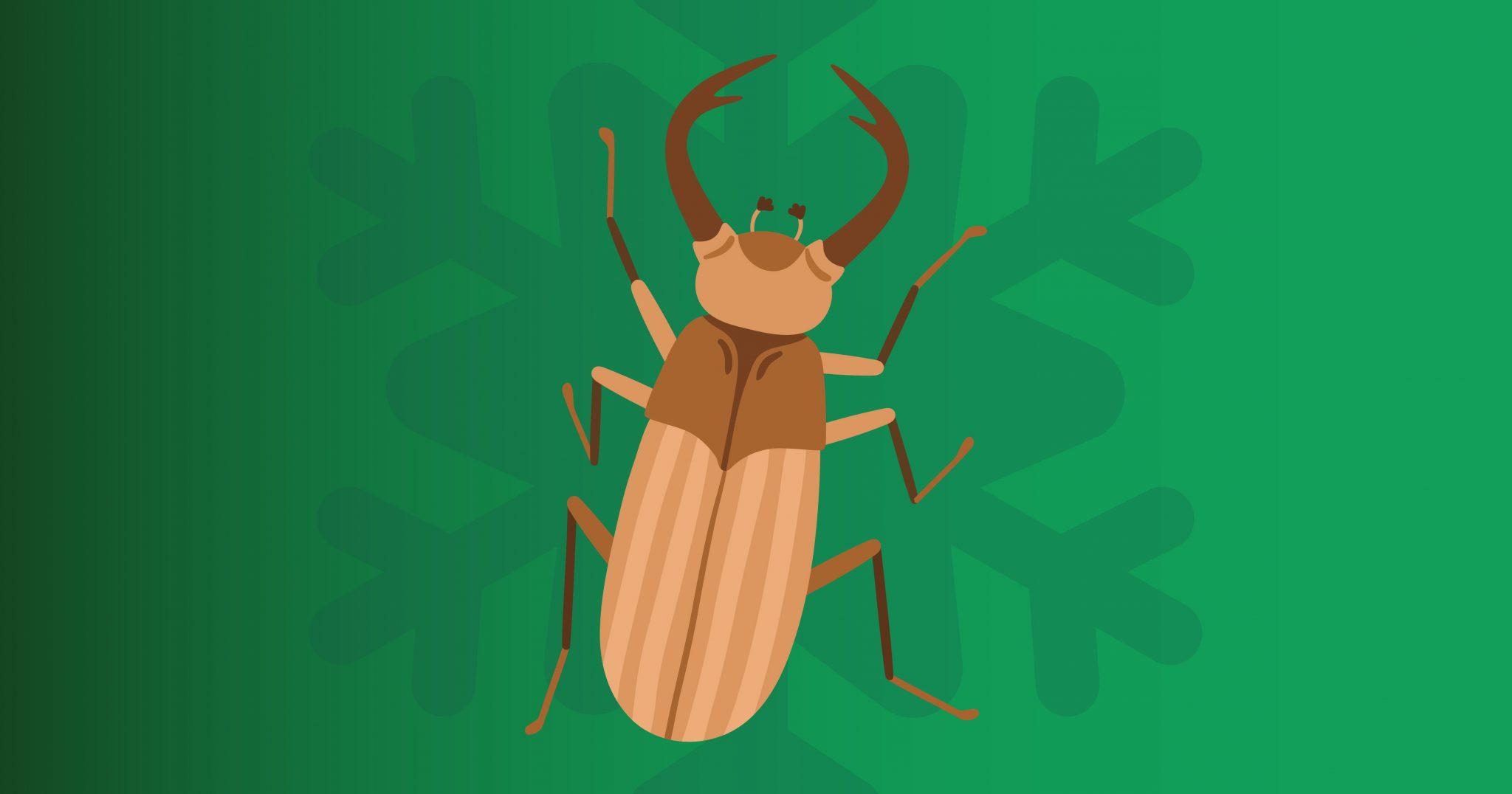
As the name suggests, June bugs thrive in the summer. As soon as winter arrives, June bug larvae will burrow deep into the soil to escape the freezing temperatures. During this period, the larvae will pupate; this is the last stage before the June bug matures into adulthood. This can take anywhere from one to three years depending on the species.
Where do ladybugs go in winter?
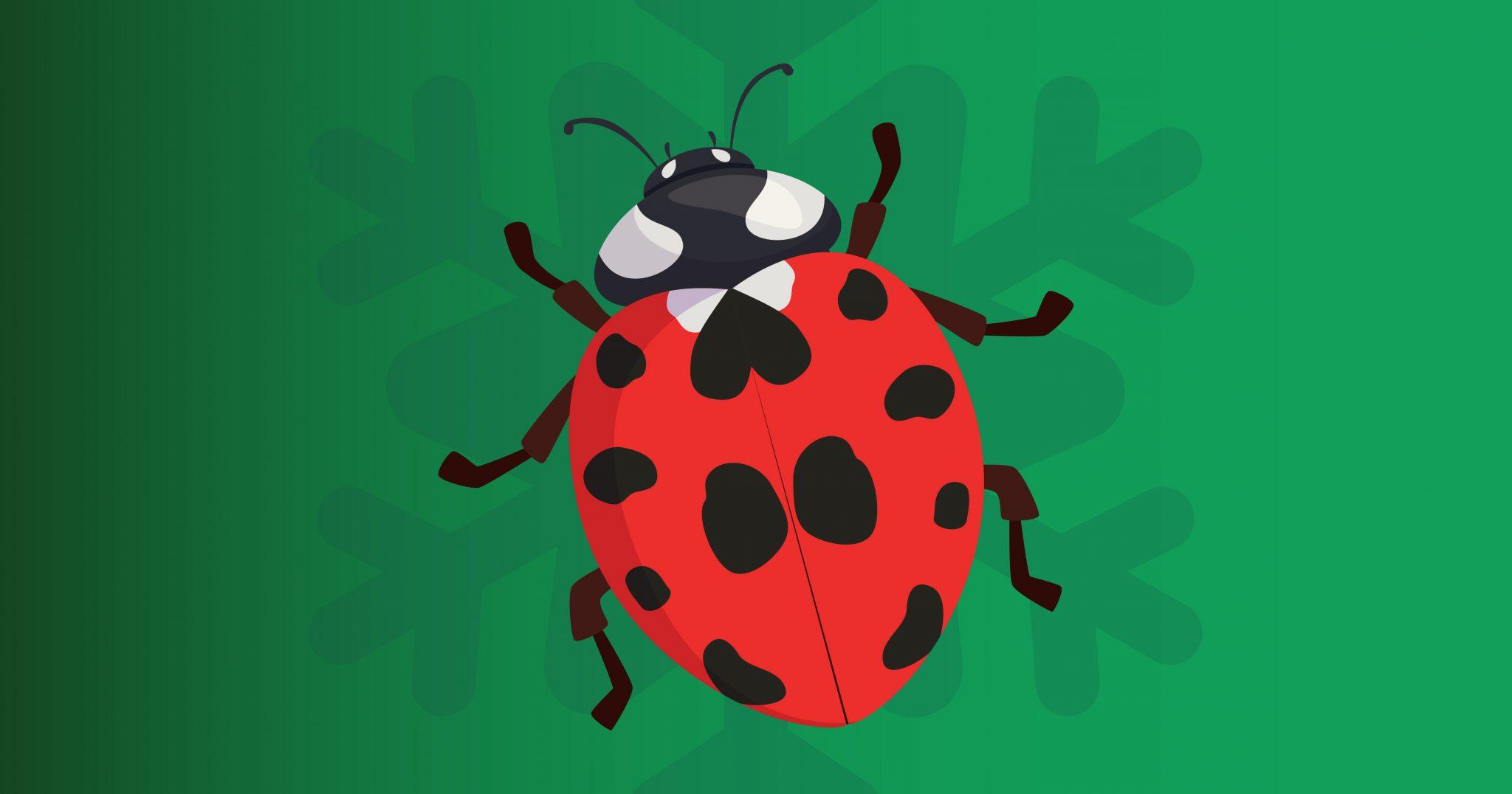
Ladybugs are cold-blooded insects, which means they rely on external temperatures to regulate their body heat. Consequently, they hibernate in groups as soon as winter arrives. They will often hibernate near sheds and garages – anywhere that’s warm.
Common winter pests in the UK
Whilst pests are no doubt associated with summer weather, there are several pests that continue to endure throughout the whole year. Winter doesn’t deter mice and rats — it encourages them. Rodents will attempt to enter homes to access food and warmth due to the paucity of natural food sources. This can prove damaging to your property; rat teeth are even stronger than human teeth and can gnaw through even the toughest of materials.
Although insects are less common in the winter, it’s important to remain vigilant. Some insects, like flies and cockroaches, can still be drawn inside to the warmer temperatures and are particularly attracted to places with a source of food — your kitchen especially.
It’s clear that you shouldn’t let your guard down with the changing season. If you’ve noticed signs of an infestation, contact Pest Defence today. We work quickly and discreetly to tackle any pest issues in the Essex and London region – including Colchester, Chelmsford and Brentwood.
Allow our expert team to handle your pest problem and get in touch with us today.
